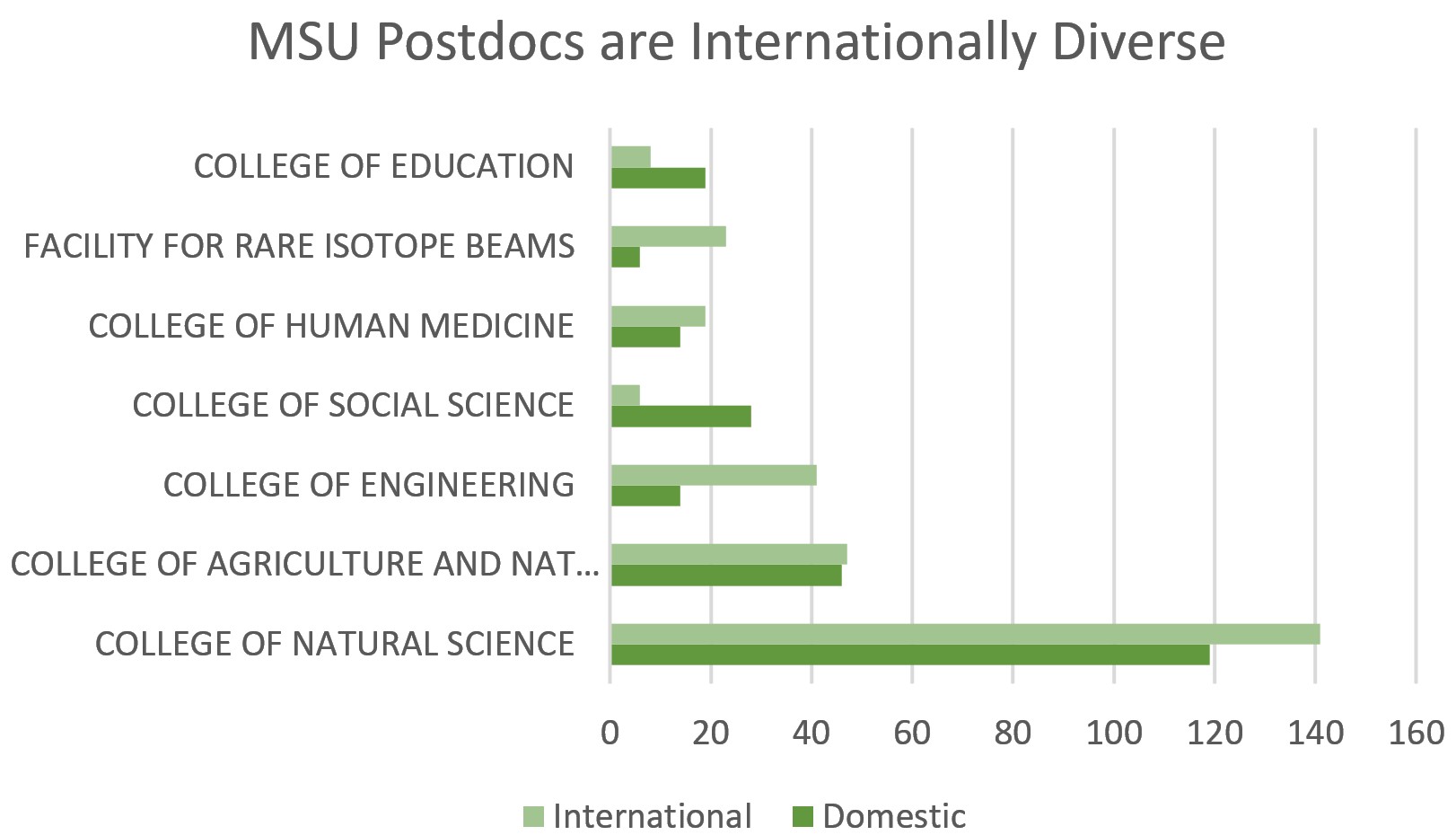For most people who work in academic research, training is a lifelong endeavor. Similar to how physicians in subspecialties continue into fellowships after residency, a growing number of fields expect students to do additional fellowships following their PhD. The period of training after graduation is colloquially referred to as a PostDoc, and the majority of trainees are appointed as Research Associates at MSU.
PostDocs conduct research in every college at MSU and are frequently the main drivers of the data collection and experimentation that lead to so many exciting breakthroughs.
Who are MSU PostDocs?
PostDocs conduct research in every college at MSU and are frequently the main drivers of the data collection and experimentation that lead to so many exciting breakthroughs. When you look up articles published in many STEM fields, their names are first among the authors, while the lead faculty (Principal Investigators) are traditionally listed last. At MSU, more than 50% of our PostDocs are international, which is typical of most large research universities, and the majority conduct research in STEM fields (science, technology, engineering and mathematics).

Most PostDocs at MSU are appointed as Research Associates, and while they seek to obtain independent fellowships and funding, they are supported on their faculty supervisors’ research grants. One challenge that many of them face is that our federal funding institutions do not provide fellowships for international trainees. This can put many of our faculty and researchers in a tough spot, which makes their accomplishments even more incredible.
 PostDoc gathering in 2019
PostDoc gathering in 2019
Most PostDocs have had a full academic career by the time they join MSU, and the average age when they start is approximately 30 years old. Two thirds of our PostDocs have families living with them, many with young children. Although some of them stay in their positions for one or two years, we have a significant number, particularly in life sciences, who stay on for five years or longer.

Aaron Reifler, Director
Office of Postdoctoral Affairs
How does the Office of Postdoctoral Affairs support MSU PostDocs?
The MSU Office of Postdoctoral Affairs is a relatively new addition to the community. Established in October 2019, it provides a sense of identity for MSU PostDocs, offering monthly orientations for new members (who begin their appointments at all times of the year), as well as professional development and leadership at the University. The office works very closely with the Graduate School and allows for both targeted initiatives that are appropriate for the trainees, as well as broad programs that overlap interests of students and faculty. There is a saying that goes “the PostDoc is basically an audition for an independent career,” so the office works to leverage our resources to make our PostDocs as competitive as possible.


